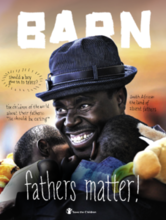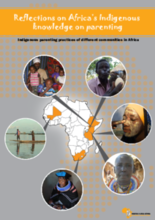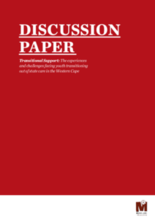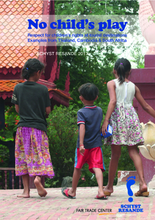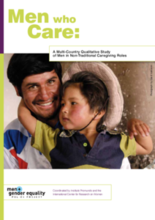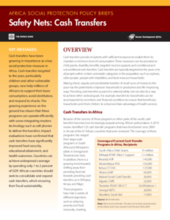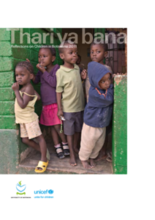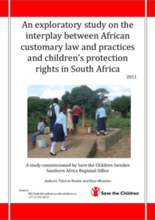childrens_living_arrangement
children_living_without_bio
Displaying 281 - 290 of 336
Barn is a magazine about children’s rights published by Save the Children Sweden with four issues per year. This issue is focused on the role of fathers in children’s wellbeing and development.
This publication, produced by the Parenting in Africa Network (PAN), highlights the skillful parenting practices of several pastoral communities in Africa.
In 2012, Mamelani began an assessment of the content and focus of its transitional support programme. The aim was to consolidate its existing practice as well as to discover and implement new ways of ensuring more participants in its programme make a successful transition out of care.
This report was commissioned by the Swedish network Schyst Resande and conducted by the Fair Trade Center, with the overall objective of raising awareness of children’s rights in relation to tourism and travel destinations which many Swedish tourists visit.
A report examining the experiences and attitudes of men involved in non-traditional care activities and roles in Brazil, Chile, India, Mexico, and South Africa.
This policy brief from the World Bank provides an overview of cash transfers in African countries.
This paper focuses on appropriate responses to the unique challenges faced by young people at risk who are transitioning out of state care in South Africa.
Collection of research and reflections on children’s issues in Botswana articles in the various chapters of the publication have been structured to follow the life cycle of the child as she or he grows and is faced with different issues that need to be addressed: young child survival; child development; child protection; HIV and AIDS; and child-sensitive social protection.
Understanding youth transitions from out of home care must include developing countries. A model is presented to facilitate this global integration. The model combines resilience and social capital within a social ecology of support. Use of the model is illustrated by a South African youth mentoring scheme for care leavers.
Save the Children Sweden commissioned this follow-up study to explore to what extent in South Africa, African customary law and practice promotes and/or inhibits the protection of children; how the positive impacts can be harnessed for the greater protection of more children; how the negative impacts can be mitigated; and finally how and who should be at the helm of any necessary developments of African customary law.

